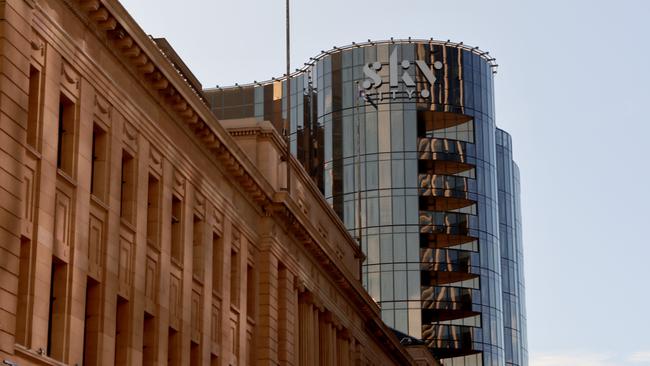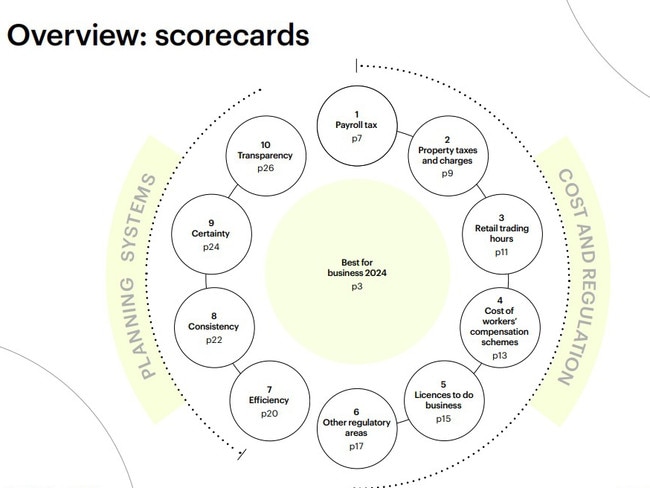Business Council of Australia declares South Australia the winner for 2024
Australia’s leading business body has just ranked the best and worst states and territories for commerce and a surprising state has come out on top.
Companies
Don't miss out on the headlines from Companies. Followed categories will be added to My News.
South Australia beats out every other state and territory as the best place in the country for business, the Business Council of Australia says.
The new ranking from the peak business body pits each jurisdiction against each other across a range of metrics from payroll taxes and planning systems to licensing and trading hours, with South Australia coming out on top overall as the “best for business”.
The state leads on the cost of regulation, payroll taxes, planning and land use, efficiency in permitting, and consistency, certainty and transparency in the approvals process.
It also in third spot for property taxes and licensing.
“South Australians have made it clear that they want their state to be destination No.1 for business, and other jurisdictions need to take note if they want to remain competitive in attracting business investment,” BCA chief executive Bran Black said on Monday night.

“We know that lower taxes and more efficient regulatory settings increase business growth and productivity.
“South Australia is leading that charge and will see the benefit of increased investment.”
On planning controls, the BCA singled out South Australia for a standardised model that moved away from a patchwork system of approvals and decision-making.
“South Australia has the most consistent planning system, with a centralised and consolidated planning code approach,” the report states.
“The ACT also has an advantage given it is the only jurisdiction in Australia that does not have individual councils, meaning there is standardisation across the territory.
“Queensland has the least consistency based on this analysis. The state’s planning system grants significant autonomy and power to local councils in planning instrument zoning naming and coding, resulting in significant variation from one council to the next.”
South Australia also moved to streamline its planning consent requirements for new homes within masterplanned greenfields zones in August 2023 in a bid to spark more housing development.
The new regimen means builds that meet basic criteria can bypass the council process and go directly to the building consent and final development approval phases.
But while the state leads on most metrics, it lags on the retail trading hours measure, falling to sixth position.
“South Australia, Queensland, and Western Australia continue to have the most restrictive trading hours in the nation, with Western Australia having the fewest exemptions and shortest trading hours,” the report states.
“In contrast, both Queensland and South Australia classify many retailers as exempt, with non-exempt retailers generally having longer trading hours than those in Western Australia.”

The BCA ranks Victoria in bottom position overall, with the populous state consistently behind most other jurisdictions on most measures.
“Victoria has the most work to be done on cost and regulation,” the report states.
“Its property tax settings were the least competitive nationally and it also ranked uncompetitively in terms of payroll tax costs and business licensing requirements.”
The council singled out Victoria’s land tax regimen for criticism.
“Victoria is furthest behind with the third highest land tax rate and the highest stamp duty rate,” the report states.
“Victoria also ranks lowest for both land tax and stamp duty for small expanding businesses.
“This is partly due to Victoria’s introduction of the Covid land tax surcharge.”
Originally published as Business Council of Australia declares South Australia the winner for 2024



